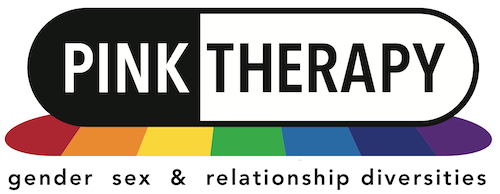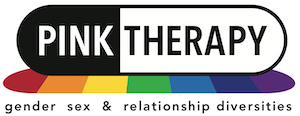LJ Potter - Focusing
About the Therapist
Focusing is an approach popularised by Eugene Gendlin, a psychotherapist who saw that in his experience of client work, people had ‘better’ outcomes the more they were in contact with their inner experience (which he called the ‘felt sense’). Additionally, he realised that people could be facilitated to connect with their inner experience, and as a result, ‘focusing’ was born.
As a trans person who can sometimes struggle to connect with my body, I found that focusing provides a unique way to connect with what is under my physical sense of self, to something much truer to my sense of self.
Guided focusing in practice is usually a one-off or a short set of sessions, although it is possible to work long-term with guided focusing.
Guided focusing differs from ‘focusing oriented therapy’ (FOT) in that it keeps focus directly on what is happening with the focuser (that’s you) in the moment. FOT will do some of this, but is also much more likely to start focusing on patterns of relating for example.
What is focusing?
Focusing is the experience of putting aside what your head thinks and tuning in to what your body feels. This isn’t about ‘recognising your emotions’, but about something beyond that. It asks you to consider what felt sense you are having about your body. Do you notice a sense of tension somewhere inside? Does that sense of tension have anything it wants you to know?
We begin focusing in one of two ways usually - either we come with ‘an issue’ and we want to sense into what our body has to tell us about ‘the issue’ (no matter what we think we think!), or we can come and simply focus on what’s present for the body, and work with that.
The beauty of focusing is that neither of these approaches requires you to name the topic itself. I once worked with someone in a session who was working through something, and I had no idea what the topic was. Two days later he contacted me to tell me he had decided to get a divorce. Suddenly the focusing session of two days previously made sense, but I didn’t need to know the content in order to explore his process. This happens over and over in focusing. You’re welcome to talk about your content if you wish, but you’re never required to.
I am a qualified focuser who is just finishing my focusing-oriented therapist qualification. This qualifies me to work as an FOT, a focusing trainer, or as a focusing practitioner. As I move into this qualification I am setting up my focusing work, which is done along-side course-mandated supervision.
Whilst I am a qualified therapist and could provide focusing-oriented therapy or guided focusing, this is a profile for my guided focusing work only. Please contact me on my ‘LJ Potter - psychotherapy’ or ‘LJ Potter - supervision’ profiles if you are looking for therapy or supervision.
- Ace | Asexual
- Bi- | Pansexual
- Kink - BDSM
- Other
- Queer
| Award | Awarding body | Year of award |
|---|---|---|
Focusing training usually consists of taking ‘levels one to five’. I have done each of these levels more than once. In addition I am just finishing my FOT qualification with the London Focusing School, which allows me to work as a focusing practitioner, focusing trainer and focusing-oriented therapist.
- Focusing-oriented therapy
- Other
- Ace | Asexual
- BDSM | Kink
- Bi- | Pansexual
- Consensual non-monogamy
- Cross-dresser
- Lesbian
- Non-binary | Genderqueer
- Queer
- Questioning
- Survivors of attempted conversion therapy
- Trans
- One to one
- No adaptation
- Adults
- Seniors (60+)
- Young adults (16-24)
- Online
£50-60 per 60 minute session.
Sorry, no records were found. Please adjust your search criteria and try again.
Sorry, unable to load the Maps API.

